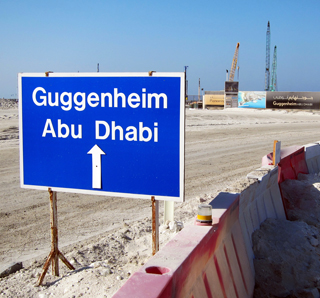
The construction site of the Guggenheim Museum's Abu Dhabi branch, which is expected to open in 2017. There has been a great deal of controversy regarding the rights of the migrant workers who have been hired for the job. ((c) Samer Muscati Used with permission.)
Instructor(s)
Prof. Kristel Smentek
MIT Course Number
4.609
As Taught In
Spring 2014
Level
Undergraduate


